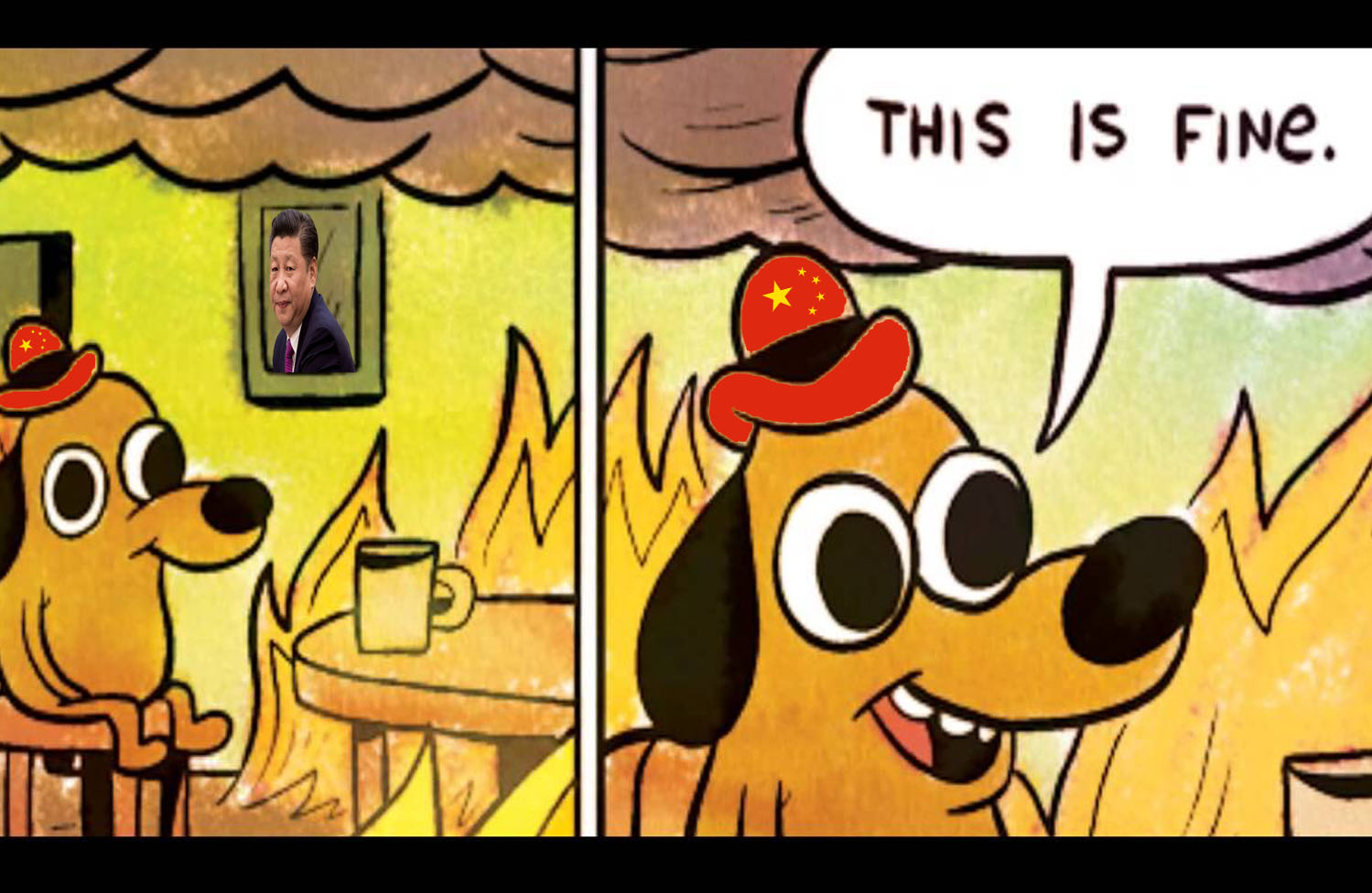Everyone has that one friend who seems like they’re doing really well, like everything in their world couldn’t be going any smoother, but you have this inkling that something is up. You think to yourself, there’s no way this person could be this happy, there are clearly issues afoot here. Upon asking this individual they deny that anything is even remotely wrong, but alas, no secret can be kept forever. You discover that their world is crumbling around them at a snail’s pace. This, friends and honored guests, is the current plight facing the People’s Republic of China.
President Trump has lambasted China for quite some time, on how its industry leaders manipulate the global marketplace, going so far as to wage an all-out trade war against the world’s second largest economic superpower.
Unlike other decisions made by President Trump that have received global criticism, his hardline approach to dealing with Beijing has recently garnered significant support at home as well as in countries like Germany, Japan, and the United Kingdom. In early December, President Trump and Chinese President Xi Jinping sat down to iron out tenable solutions for their ongoing trade war. At the conclusion of their meeting, Trump agreed to cancel his planned Jan. 1 tariff increase on Chinese products in exchange for purchases of a “very substantial amount” of the American farm, energy, and industrial goods.
One analyst, Fraser Howie, spoke on the agreement between the US and China:
“Markets should be happy, in that the worst is postponed. But I don’t see the West ever going back to business as usual with China. Too many genies have been let out of the bottles.”
–Fraser Howie
Despite Trump’s resolve to pursue routes to ease US stock market tensions catalyzed by China-related issued, matters were only made worse when, in December, the US indicted Huawei executive Meng Wanzhou. Meng is the deputy chair and chief financial officer of Huawei Technologies Inc., China’s largest telecom equipment manufacturer.
The company has recently been under investigation for allegations claiming that Huawei has broken American trade controls on Cuba, Sudan, Iran, and Syria. Huawei has garnered significant successes by tapping into telecom markets in countries around the world, but when the company decided to work with Syria, where American officials had been working to impose limits on technology in an attempt to prevent further human rights abuses, these businesses tactics have resulted in claims that China is purporting these atrocities. Earlier this year, the US Treasury and Commerce Department began investigating Huawei for claims that the company was potentially violating economic sanctions against Iran, according to the New York Times.
In more recent reporting, China’s factory sector contracted last month for the first time in nearly three years, according to government data published earlier this week. The report stated that although output continued to expand in 2018, “new orders rose at the slowest rate since May 2017, while export sales decline for the fifth month in a row.”It continued to note that “employment remained on a downward trend which, in turn, contributed to an increase in outstanding workload. The world’s second-largest economy has been progressively becoming weaker due to a slowdown in export orders amid the ongoing trade war between the United States and China. Upon review of last year for growth in China’s economy, analysts say China’s market hasn’t done this poorly since 1990, according to CNN.
“The employment subindex, remaining in contractionary territory, dipped to its lowest level since July 2017. The subindex for new export orders inched up despite remaining in contractionary territory, implying a still-grim export situation.”
–Dr. Zhengsheng Zhong, Director of Macroeconomic Analysis, CEBM
The question on the minds of most stakeholders in the geopolitical arena, specifically those with a vested interest in either the US or Chinese economies, how the trade war will play out in 2019. After President Trump imposed billions of dollars in tariffs on Chinese exports, sources say the two countries may come to an agreement as early as February. If they do not succeed, tariffs may only get worse.





